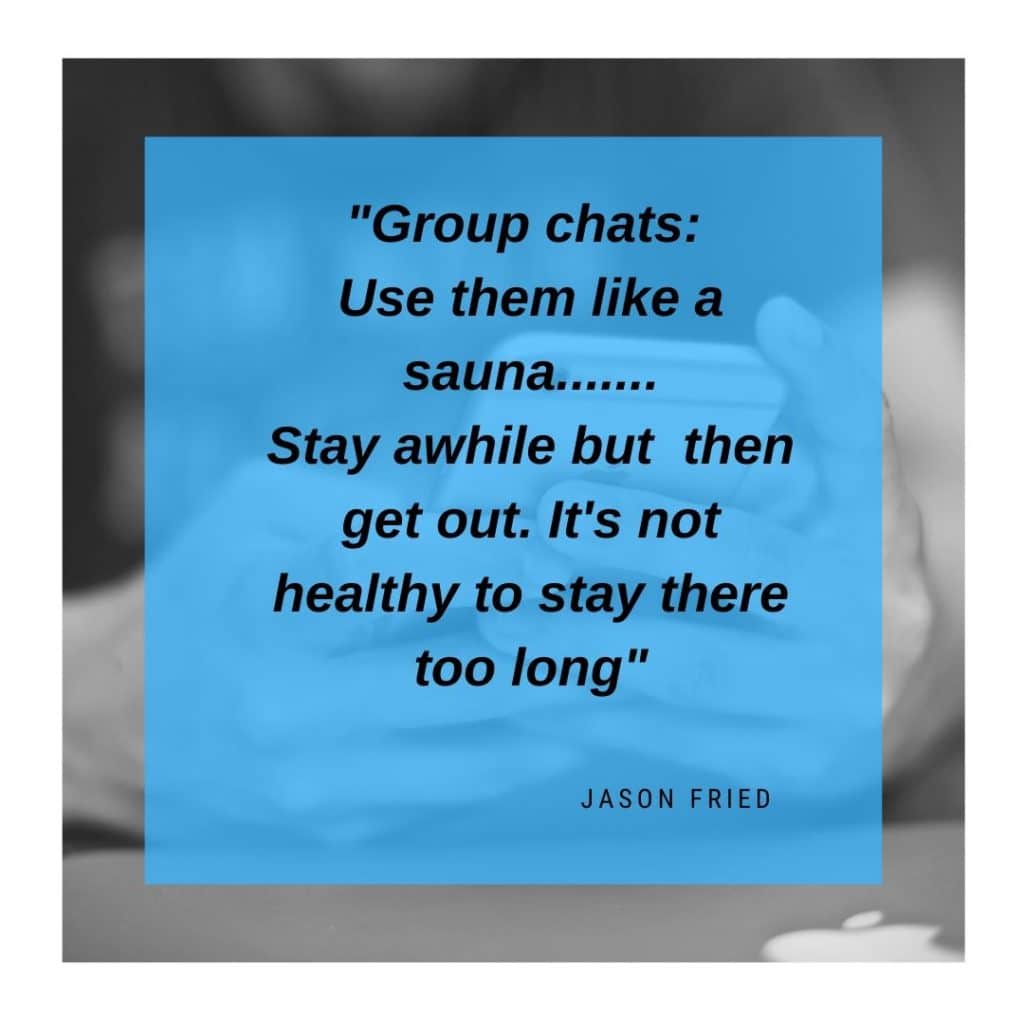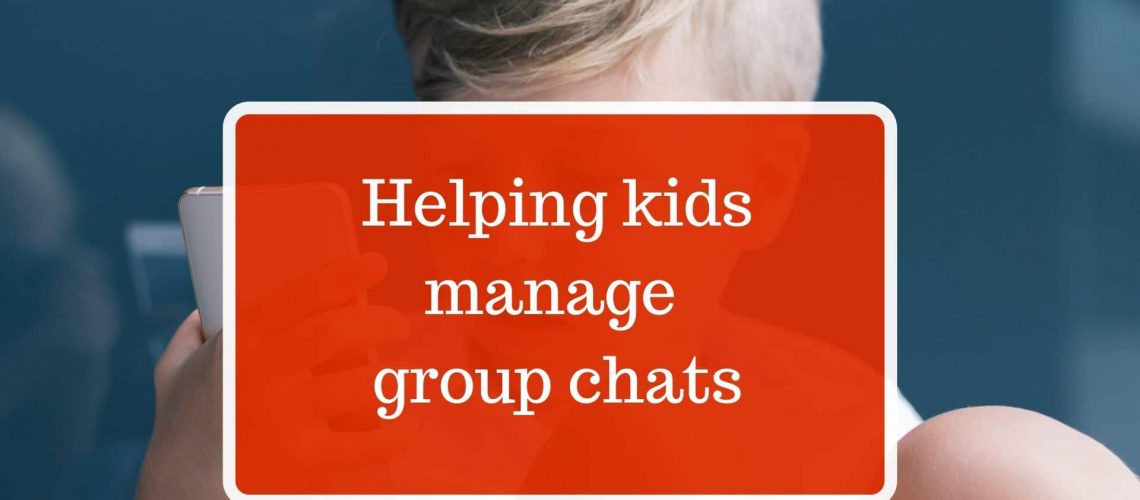Group chats can be a great way for a number of people to participate in an online conversation together. It can make organising events and outings easy, it can provide connection and camaraderie and offer support and friendship in a relatively safe, small and private way. They can happen via dedicated group chat apps (such as WhatsApp) or on many of the other social networks as a feature that offers chats away from the more public feeds and updates. Like everything online however, group chats can be used in ways that are both helpful and harmful. They can quickly become a very public chat where the intended audience is no longer the only audience witnessing the conversation. They can also be a place where drama, nasty behaviours, exclusion and bullying can thrive.
Not so private
We know that oftentimes young people are in a chat with possibly any number of people, and whilst having that chat they are of the belief that only those people in the chat group are privy to those interactions. But what we find time and again, is that if there is a group chat of 8 people, for example, that is potentially 8 sets of parents that may be checking their child’s phone and reading that chat, particularly if those parents have decided to keep an eye on their child’s device and interactions whilst they are young. There have been countless times when this has resulted in schools being contacted because of the conversation that has occurred which may be nasty or inappropriate and therefore can have repercussions for those kids involved in the chat…even if they are not the ones saying the nasty, bullying or inappropriate things. And of course there are the normal ways of sharing online content via screenshots, saving and forwarding on to other people, that can result in widespread broadcasting.
Drama, exclusion and cyberbullying
There have also been many times when young people have engaged in nasty behaviour about another person in a group chat, then deliberately invited that person into the chat to see those comments. The deliberate nature of this abuse makes it cyberbullying and again this is something that school staff and Principals have spoken to me about regularly. I have also had numerous teachers tell me about the group chats that occur late at night, particularly in primary school level. The school is asked to manage the behaviours of the people involved in the chat, but more often than not, these chats are happening at very late hours of the night. This should serve as another reminder of the role everyone must play in helping to combat negative online experiences. Removing access to the devices late at night obviously helps to avoid the interrupted sleep caused by the group chat notifications and beeps. It also avoids having to engage in conversations at night when our emotional part of the brain switches on, our rational part of the brain takes a back seat, and we are therefore left more emotionally vulnerable.
Taking control
When working with young people is is helpful to give them the skills to know how to leave a group chat that is not a helpful or is harmful in any way, including the actual words to use should they need to leave. Kids have come up with statements such as “sorry guys, this is getting pretty nasty, I’m outta here” as a way to remove themselves, but also point out to the other kids that the behaviours may be getting out of hand. Not all kids have that confidence however, and many would just prefer to remove themselves from the chat. Again, not always easy for young kids but we do want them to always be in charge of their online interactions and how those interactions are going to affect their own reputation and digital footprint. Getting kids to realise that they don’t need to be guilty by association, even if they aren’t the ones saying the nasty stuff, is also a necessary part of our teaching.
Then there is the constant binging of notifications offering distraction and a need to feel socially switched on all the time. We want to give our kids the ability to put boundaries around their friendships. We don’t have to be accessible all the time just because we can be. I have had parents say their child won’t come to the dinner table without a device as they may miss out on the interactions of a group chat. We want our kids to know their friends won’t ‘go away’ if they are not involved for 30 minutes whilst they have dinner. We want them to be in charge and confident in their relationships to know that their friends will understand that their refusal to engage at every moment has nothing to do with the state of their relationship, but rather their own management of their time, their devices and their priorities.

So remember:
- Keep group chats positive, helpful and supportive. These are not the places we have a whinge about someone else, reveal our intimate secrets or create drama, gossip or spread rumours.
- Don’t feel compelled to respond straight away or be a part of every single interaction.
- Remember that just because there are only 6 of you in a private chat, doesn’t mean that chat will remain private. There are plenty of ways these chats can become very public.
- Avoid using late at night or let people know when you are signing off for the day.


This Post Has One Comment
Pingback: Safer Internet Day 2021: Start the chat – Abcomva
Comments are closed.